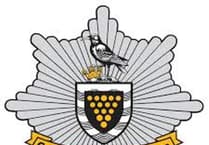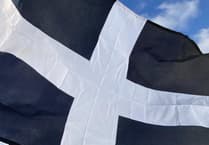Two experienced divers died when they ran out of air during an expedition on a sunken warship, an inquest has been told.
The pair became lost and disorientated in the engine room of the decommissioned Leander class frigate HMS Scylla which was scuttled to create an artificial reef in 2004 in Whitsand Bay, Cornwall.
A third diver managed to escape the wreck and told the inquest that he thought he would not get out alive as his air started to run out.
Plymouth Coroner’s Court heard that 49 year old Mark Gallant and 40 year old Andrew Harman died in the incident one evening in September 2021.
Their bodies were recovered several weeks later and a pathologist said she could not ascertain their cause of death but said on the balance of probabilities they had drowned when they ran out of air.
In August 2007 two other divers died on the same wreck when they too became disoriented in a dark compartment that had become silted.
In the latest tragedy last summer the three male divers had carried out a ‘penetrative’ dive into the wreck which sits 30 metres under water which is a haven for sea life and one of the most popular diving sites in the country.
Computer systems analyst Mark Gallant, of Stuarts Way, Hatt near Saltash, was a rescue diver and a wreck specialist.
Theatre lighting technician Andrew Harman, of Desborough Road, Plymouth, was a master scuba diver trainer.
The third diver, Adam Dent, an experienced diver with 400-500 dives behind him, said he had followed the two other men into deck three of the warship which was the ‘most dangerous’ because of a build-up of silt and because it was collapsing due to its age.
He told the senior Plymouth coroner Ian Arrow that they went exploring but as time went on the visibility became worse and they ended up in a dead end.
He said:”I could not see the exit and became totally disorientated. The visibility dropped as it silted up.
“At this point I lost sight of Mark and Andrew as the silt was really bad. The visibility was zero.”
He did bump into the men again but as his air was running out he came across a small exit and managed to squeeze out and carried out an emergency ascent hitting the surface in ten seconds instead of the normal 10-15 minutes.
He raised the alarm with the dive boat who contacted the coastguards.
He told the boat skipper that his two companions were trapped in the engine room.
Andrew Harman’s father Michael said he had served on an almost identical warship and said the engine room area is ‘cavernous and easy to get lost in there in normal usage, navigating it is a very precise skill’.
He said that divers should be warned about the dangers of penetrative diving on wrecks, and particularly HMS Scylla.
He said:”I don’t wish to stop people’s fun, it is a lovely site to dive, but is dangerous to penetrate.”
He urged that divers must be given a proper warning that penetrative diving is unsafe.
Coroner Mr Arrow recorded both men died as a result of an accident and said they came disorientated in the ship and could not make their way out.
He said the men died ‘doing something they most enjoyed’ and said a diving protocol may be introduced to prevent future deaths.




